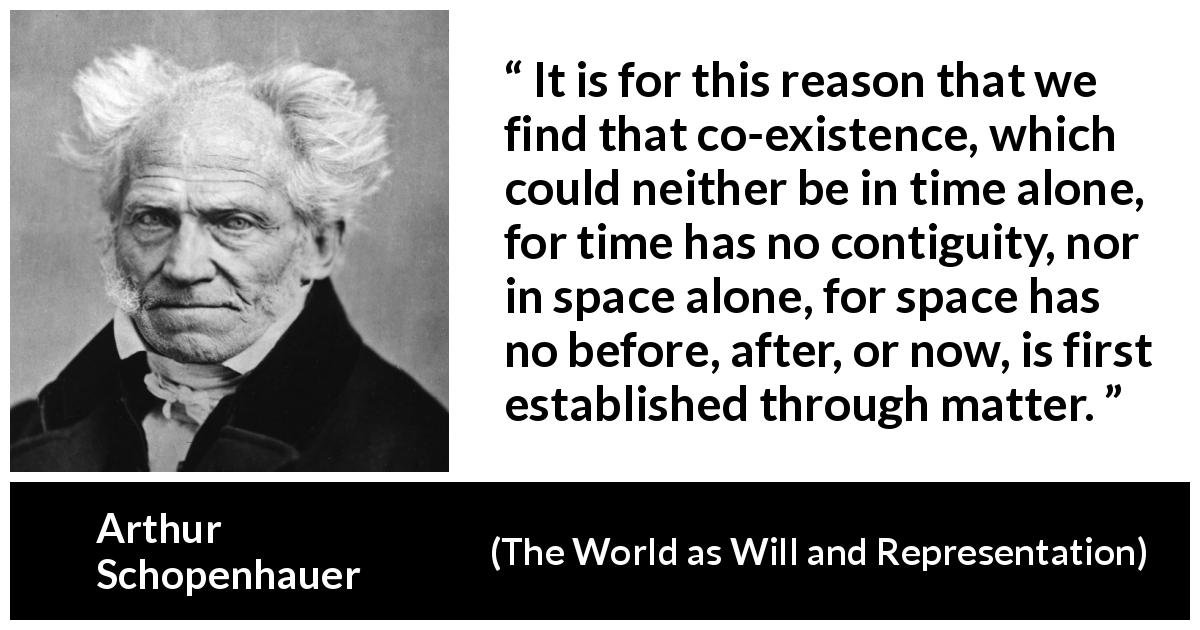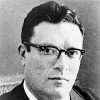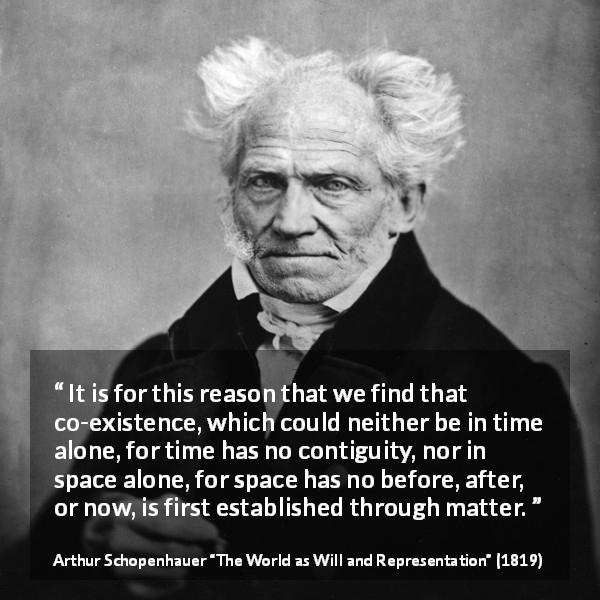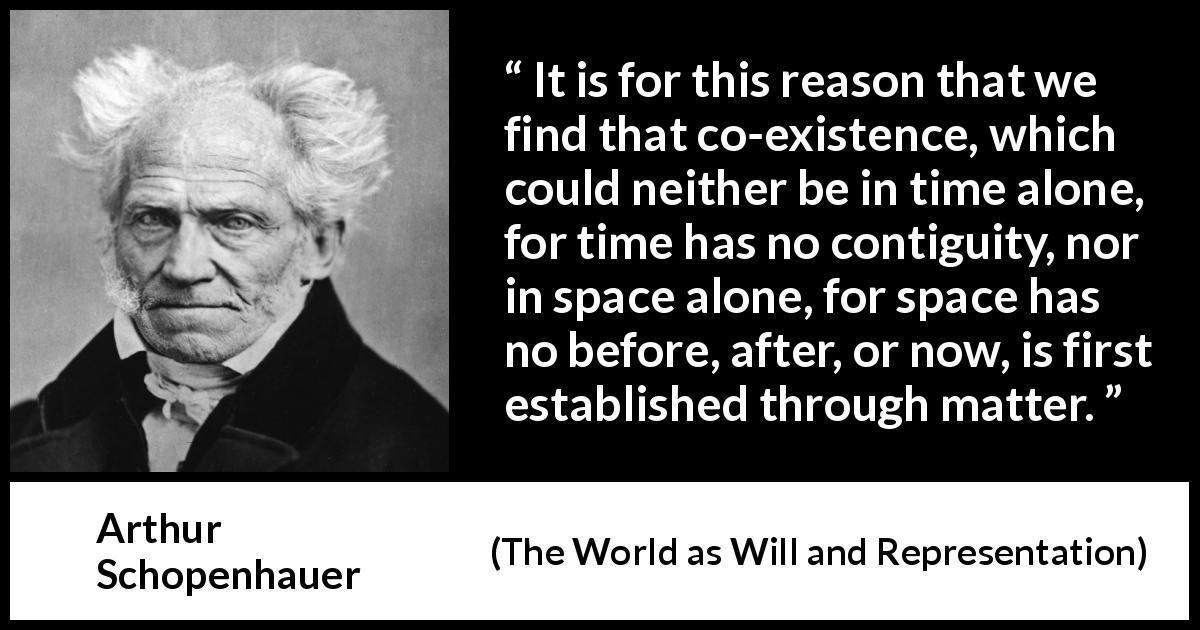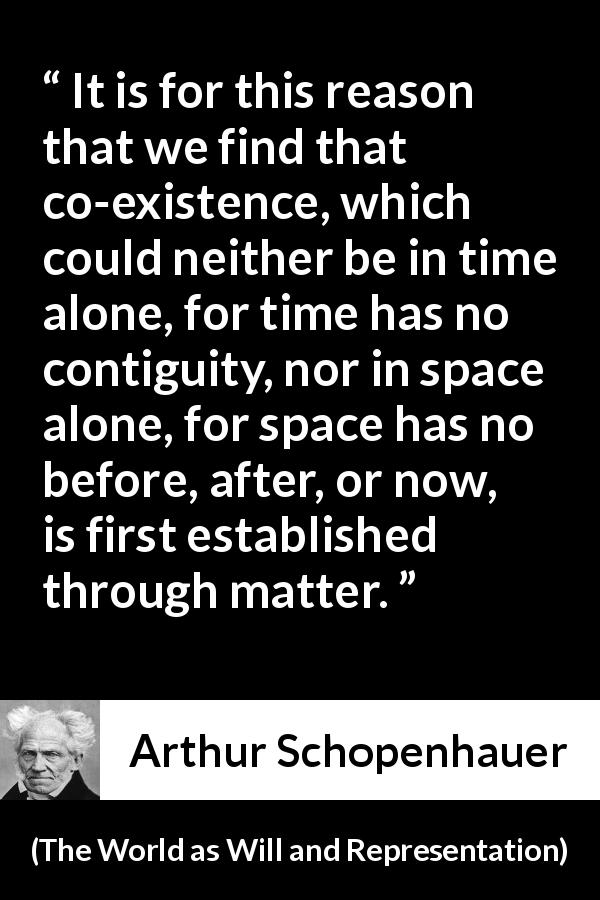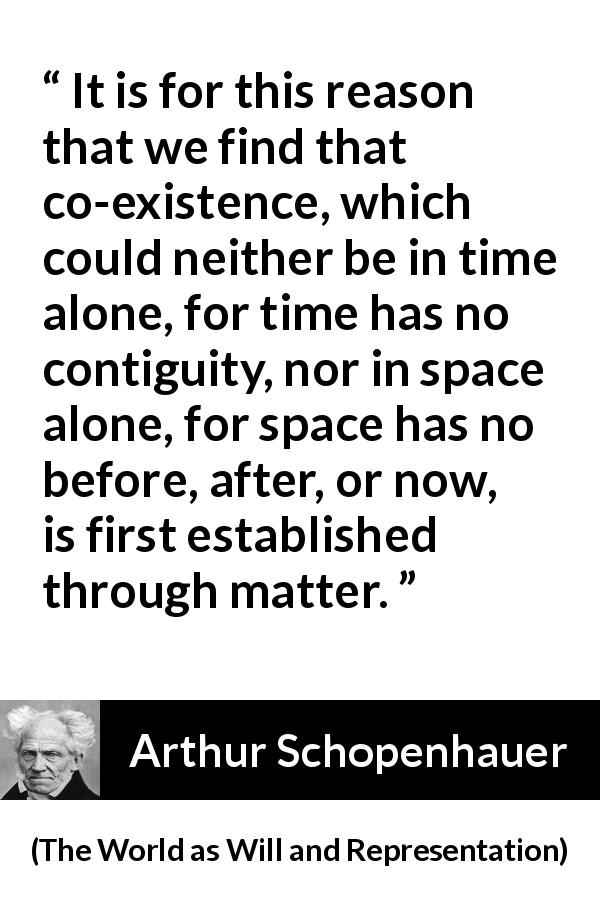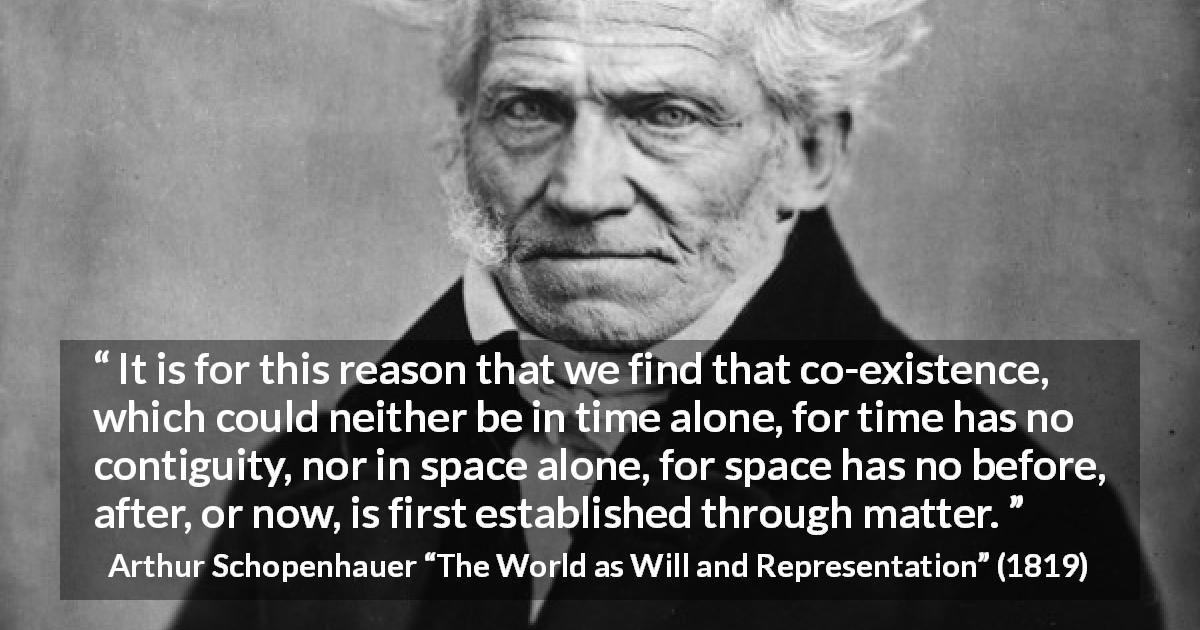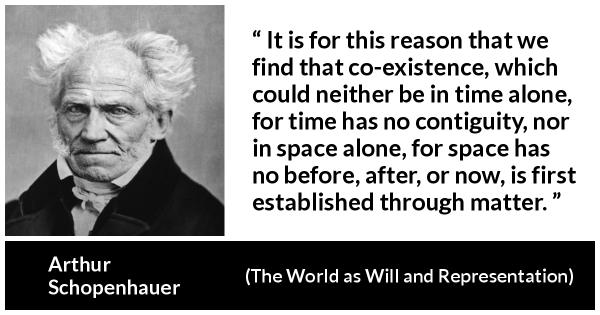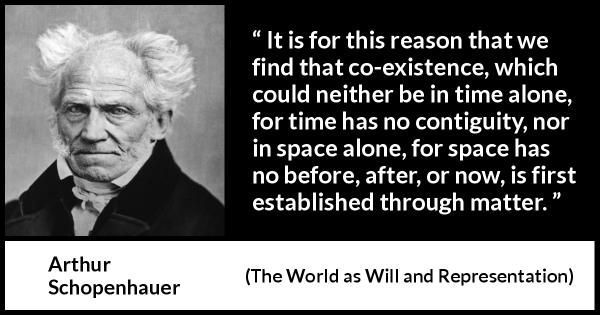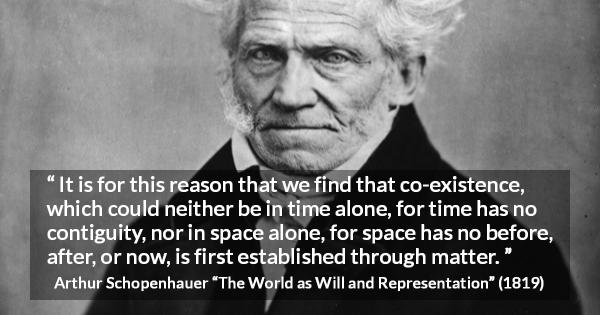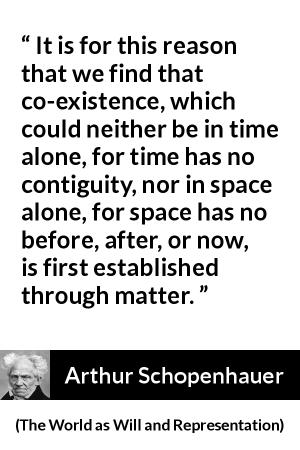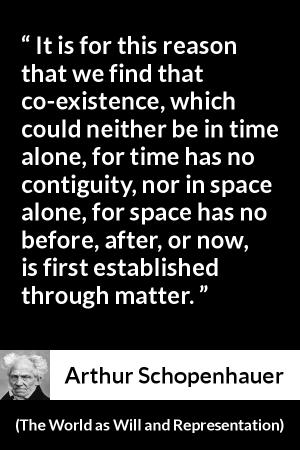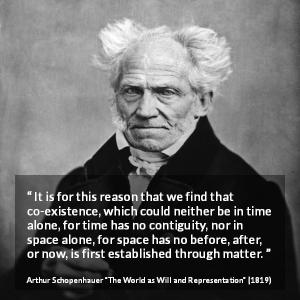“ It is for this reason that we find that co-existence, which could neither be in time alone, for time has no contiguity, nor in space alone, for space has no before, after, or now, is first established through matter. ”
Arthur Schopenhauer, The World as Will and Representation (1819). copy citation
| Author | Arthur Schopenhauer |
|---|---|
| Source | The World as Will and Representation |
| Topic | time space existence matter |
| Date | 1819 |
| Language | English |
| Reference | |
| Note | Translated by R. B. Haldane and J. Kemp |
| Weblink | http://www.gutenberg.org/files/38427/38427-h/38427-h.html |
Context
“But we found that the whole essence of matter consisted in action, i.e., in causation, consequently space and time must also be united in matter, that is to say, matter must take to itself at once the distinguishing qualities both of space and time, however much these may be opposed to each other, and must unite in itself what is impossible for each of these independently, that is, the fleeting course of time, with the rigid unchangeable perduration of [pg 012] space: infinite divisibility it receives from both. It is for this reason that we find that co-existence, which could neither be in time alone, for time has no contiguity, nor in space alone, for space has no before, after, or now, is first established through matter. But the co-existence of many things constitutes, in fact, the essence of reality, for through it permanence first becomes possible; for permanence is only knowable in the change of something which is present along with what is permanent, while on the other hand it is only because something permanent is present along with what changes, that the latter gains the special character of change, i.e., the mutation of quality and form in the permanence of substance, that is to say, in matter.7 If the world were in space alone, it would be rigid and immovable, without succession, without change, without action; but we know that with action, the idea of matter first appears.”
source
